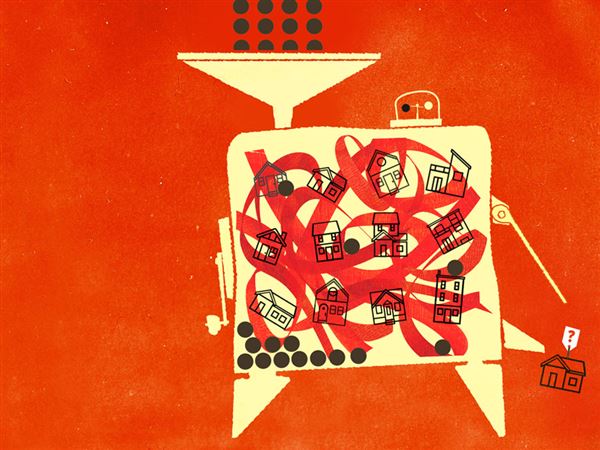In the 1920 science fiction play "R.U.R." by Czech playwright Karel Capek, robots created by the Rossum's Universal Robots Co. take over the world. The play introduced the word "robot" into the vocabulary, and since then the imagination has run wild about machine people.
A group of scientists, including two from Carnegie Mellon University, would like to help people refine their thinking about robotics beyond what they get in the popular press.
They have started robotradar.org, a website where scientists can comment on media stories about robots.
"Robohype is a real problem," said one of the website's founders, Alan Winfield, professor of electronic engineering, University of the West of England Bristol. "People reading the mainstream press could be forgiven for thinking that present day robots are capable of human reasoning, have feelings or behave ethically."
Another of the site's founding group, Illah Nourbakhsh, a CMU professor of robotics, got to meet a lot of Europeans in the field of robotics while on a sabbatical in England. "They were seeing more and more where science fiction about robots and reality collide," he said.
Matthew Mason, director of CMU's Robotics Institute, also scours the press for stories about robots and robotics.
Even though postings are written by experts, they try to keep the articles accessible and interesting.
For example, Mr. Nourbakhsh posted a reply to an article in The Wall Street Journal titled "Could We Trust Killer Robots?" about the possibility of robot soldiers.
In response to the idea that robots could one day make better soldiers than humans, Mr. Nourbakhsh wrote, "The draw is attractive: cold, calculating robots that are not susceptible to emotional sway will make lethal decisions that are highly rational and rule-based, following the letter of the law set down for them.
"This vision of rationality in war works particularly well if we imagine war to be a predictable, rule-governed practice, like a game of chess. But, unfortunately, war also has a chaotic, randomized and surprise-filled side to it, more like poker than chess."
He goes on to give four reasons that he thinks autonomous, lethal robots are a long way off.
"People think that a robot can be a soldier, but it is just a tool -- a weapon not a soldier. It will not have the decision-making ability that a soldier has."
Mr. Nourbakhsh thinks the biggest misconception the general public has about robots is that, "People think robots are more advanced than they are."
He thinks as robots become more commonplace, their most important contribution in the near term will be in improving people's quality of life: "Giving elderly people more mobility, allowing paraplegics to walk."
Along with robots will come ethical questions.
"They will accentuate the gap between rich and poor. Robots are going to be expensive for a long time," Mr. Nourbakhsh said. "What about when certain soldiers don't get prosthetic limbs when the government runs short of money?"
There also is the issue of robots competing with the poor for low-wage jobs.
The first step in coping with these issues is to give people accurate information about robots and distinguish between "what is feasible and what is possible."
So the next time you think about robots' future, don't think about Gort or "Danger, Will Robinson." Think about a robotic prosthetic arm or an intelligent wheelchair that can help your grandparent get around.
First Published: December 16, 2012, 5:00 a.m.
















